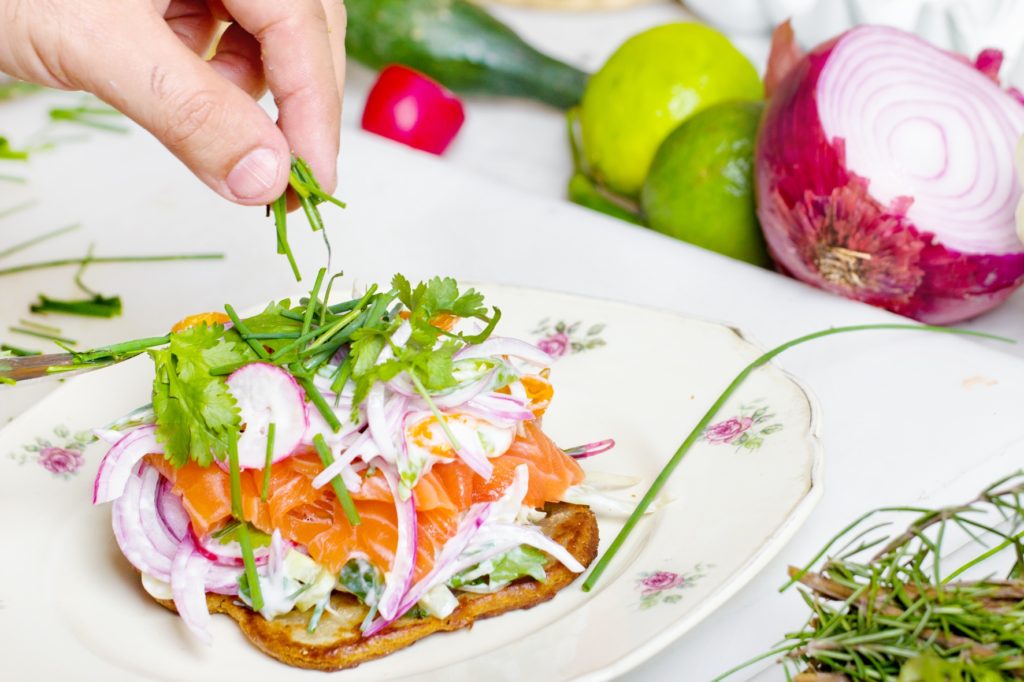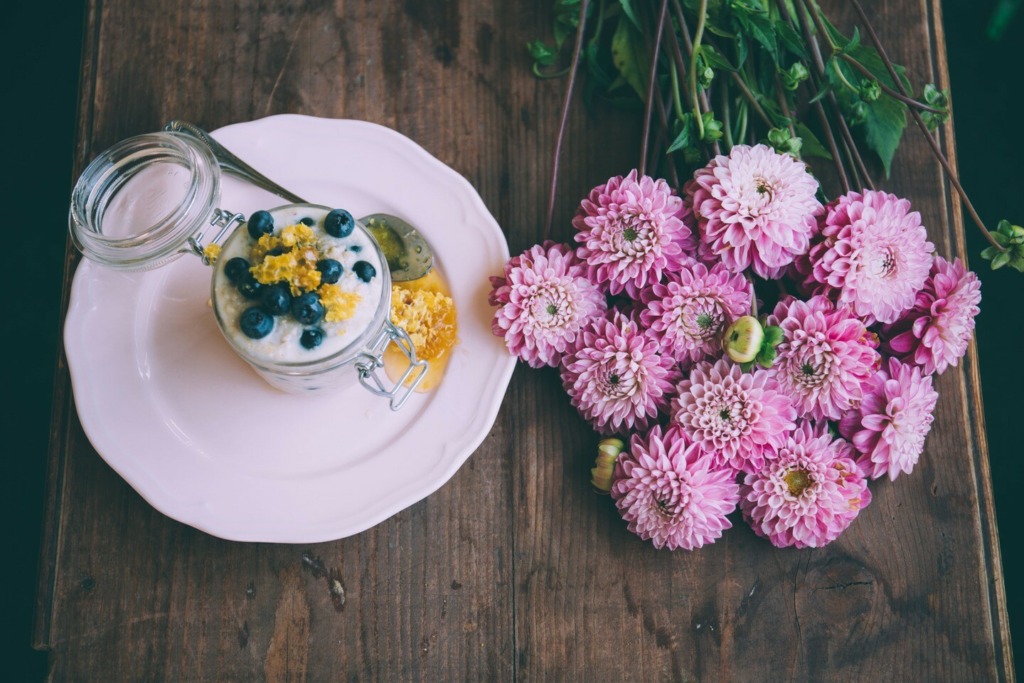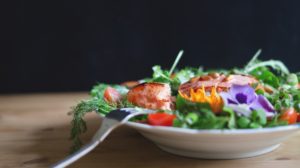One of the most commons questions I have been receiving lately is ‘is there anything I can eat to boost my mood?’ I totally get it. This time of year, the days are shorter and the cold weather can keep us inside more than we would like. Even here in Southern California, we are having lots of rain (which is actually a great thing, due to the drought!) and it has been cooler than usual. I just returned from a great two week visit with family in Nashville, and while we were there we had rain, sleet, and snow… so a little bit of everything!
If you have been feeling a little more stressed out or gloomy than usual, it’s certain not uncommon during this time of year. At least 5% of the population goes through Seasonal Affective Disorder (truly, the Winter Blues) each year, which can lead to symptoms like depression, anxiety, extreme mood changes, overeating, and overall fatigue (1). It’s not always easy to shake off the grey clouds, but there are some science-based ways to eat that boost your mood. Give some of these tips a try to help put a little pep in your step.
- Limit fast food and processed baked goods: A study in the Journal of Public Health Nutrition found that those who are frequent consumers of fast foods and commercial baked goods (both which are high in trans fats) were at the most risk for depression compared to those who seldom consume these foods (2). Moral of the story? Focus on eating less processed foods more often, and keep the fast food to a once-in-a-while (not weekly or daily) treat.
- Pour up a cup of cocoa: A recent study compared three groups of participants: one group drank a dark chocolate mix with 500mg of polyphenols (compounds that have anti-inflammatory benefits), another with 250 mg, and the last group with 0mg of polyphenols. After 30 days, cocoa drinkers in the 500mg group remarked significantly higher levels of calmness and contentedness. (3) Mimic these benefits by mixing raw cacao (100% raw chocolate) into your next cup of hot chocolate or a smoothie.
- Get fishy with it: A large population study found that those who ate fish, especially the oily kinds, at least once per week had significantly lower depression scores than those who ate fish less than once per week. (4). Some doctors even prescribe high doses of omega-3 fats (the good stuff found in the oily, fatty fish) to treat depression naturally. To reap the mood-boosting benefits, incorporate salmon, herring, mackerel, and sardines into your weekly rotation.

- Go Mediterranean: It’s likely you’ve heard of the popular Mediterranean Diet, but here’s another reason this style of eating is beneficial: research shows that those who eat by the Mediterranean diet (lots of healthy fats like olives, olive oil, and nuts, plenty of fiber-rich veggies, whole grains and legumes, fish, and even a little wine) report improvements in alertness, and contentment (5). Eat yourself happy and pretend you are on the Amalfi coast.
- Show your gut some love: You’ve heard it before…but I am all about gut health. It is so important and there is literally new research coming out daily that continues to support the need to pay attention to probiotics and other gut-friendly foods. Good bacteria from probiotics can actually help put us in a better mood. Those who consume sources of probiotics daily are less likely to get stuck on sad thoughts or negative thought patterns (6). Stock up on yogurt, kimchi, miso, kombucha, kefir, and other fermented foods to give your gut and mood some major benefits.

Eating your way to a better mood is not only easy…but delicious! Try some of these foods if you are feeling down during the winter…of any time of the year to get an energy boost and help promote mental clarity.
References
- http://www.mentalhealthamerica.net/conditions/sad
- Sánchez-Villegas A, Toledo E, de Irala J, et al. Fast-food and commercial baked goods consumption and the risk of depression. Public Health Nutr. 2012;15(3):424-432. doi:10.1017/S1368980011001856.
- Pase MP, Scholey AB, Pipingas A, et al. Cocoa polyphenols enhance positive mood states but not cognitive performance: a randomized, placebo-controlled trial. J Psychopharmacol. 2013;27(5):451-458. doi:10.1177/0269881112473791.
- Li Y, Dai Q, Ekperi LI, Dehal A, Zhang J. Fish consumption and severely depressed mood, findings from the first national nutrition follow-up study. Psychiatry Res. 2011;190(1):103-109. doi:10.1016/j.psychres.2011.05.012.
- McMillan L, Owen L, Kras M, Scholey A. Behavioural effects of a 10-day Mediterranean diet. Results from a pilot study evaluating mood and cognitive performance. Appetite. 2011;56(1):143-147. doi:10.1016/j.appet.2010.11.149.
- Steenbergen L, Sellaro R, van Hemert S, Bosch JA, Colzato LS. A randomized controlled trial to test the effect of multispecies probiotics on cognitive reactivity to sad mood. Brain Behav Immun. 2015;48:258-264. doi:10.1016/j.bbi.2015.04.003.



Love this news letters ? What probiotics should a person look for and how do you get them with food what Mediterranean Cook books or book would U recommend to buy. Do you have any legume recipe. Sardines raw in a can or raw if can with out fancy sauces normal ones in oil nothing at all what would you recommend .